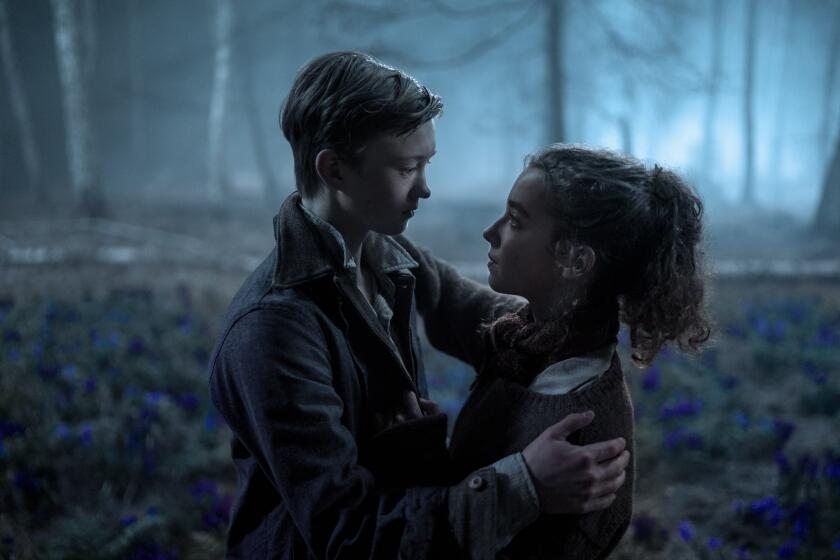‘Jakob the Liar,’ Wry Oscar Nominee
The Goethe Institute continues its remarkable survey, “Anti-Fascist Films of the GDR,” tonight at 7 p.m. with Frank Beyer’s Oscar-nominated “Jakob the Liar” (1976).
The only one of the six films in the series that has been seen in Los Angeles before, it is a stark yet oddly whimsical film. A middle-aged man (Vlastimil Brodsky, a wonderfully expressive actor), in the Jewish ghetto in a town somewhere in Germany in 1943, overhears a radio report of a Russian advance. He can’t keep it a secret, and a spark of hope soon spreads through the ghetto like wildfire. The film, however, goes on to reveal what a double-edged sword hope can be when it is after all false--and when the threat of deportation to concentration camps is constant.
“Jakob the Liar” was directed by Beyer with much passion from a script by Jurek Backer, a concentration camp survivor. It’s much like other films of the Holocaust, but tinged with a wry, absurdist humor.
The institute is located at 5700 Wilshire Blvd. Information: (213) 525-3399.
Enjoyable: “Adam’s Rib” (1923), which screens Friday and Saturday at the Silent Movie, is not top-drawer Cecil B. DeMille, but as always with the movies’ flamboyant master showman, it is enjoyable anyway. It is typical of De Mille’s late-teens/early ‘20s films in its concern with marriage among the rich (and reasonably sophisticated).
Anna Q. Nilsson stars as the elegant but neglected wife of a workaholic Chicago financier (Milton Sills); both are too preoccupied to pay much attention to their 17-year-old daughter (Pauline Garon), out to conquer Elliott Dexter’s shy, obtuse paleontologist (anticipating Cary Grant in “Bringing Up Baby”).
Meanwhile, Nilsson is being pursued by a suave continental (Theodore Kosloff), who turns out to be no less than an exiled Balkan king. Written by longtime DeMille collaborator Jeanie Macpherson, “Adam’s Rib” takes a bemused view of the battle of the sexes and features one of DeMille’s beloved, trademark flashbacks in which his characters work out their dilemmas in an unintentionally hilarious caveman drama, designed to illustrate very literally the immutability of human emotions. Nonetheless, DeMille expresses hope that we have evolved sufficiently over the millennia to be capable of unselfish sacrifice, forgiveness and understanding that are the true measures of love.
Information: (213) 653-2389.
Worth Noting: UCLA’s comprehensive and fascinating “Classic Mexican Cinema: 1919-1946” continues at Melnitz Hall with “Salon Mexico” (1948) and “Aventurera” (1949), both dealing with women, one a prostitute, the other a cabaret dancer, as social outcasts (screening Saturday at 7:30) and with “Shark Hunters” (1962) and “Yanco” (1960), two dramas of rural life (screening Sunday at 7 p.m.).
Information: (310) 206-FILM.
More to Read
Only good movies
Get the Indie Focus newsletter, Mark Olsen's weekly guide to the world of cinema.
You may occasionally receive promotional content from the Los Angeles Times.










